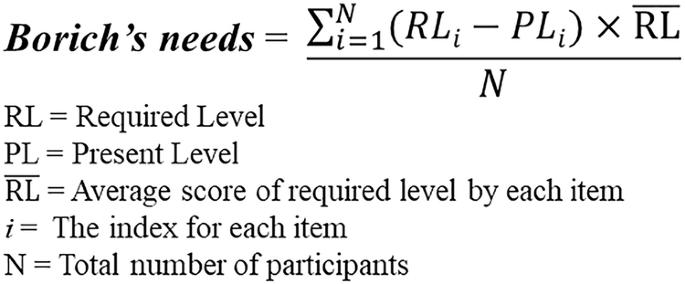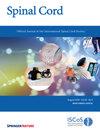脊髓损伤患者支持服务需求的优先次序。
IF 2.2
4区 医学
Q3 CLINICAL NEUROLOGY
引用次数: 0
摘要
研究设计:横断面调查。目的:本研究旨在确定并优先考虑韩国脊髓损伤患者所需和当前支持服务水平之间的差距。设置:社区。方法:横断面分析涉及532名韩国脊髓损伤协会会员。这些参与者是通过2021年脊髓损伤患者需求调查招募的,由训练有素的调查人员通过面对面访谈进行。该调查评估了11项主要支持服务的需求和当前水平。采用Borich需求评估和焦点轨迹模型来确定这些服务的优先级。结果:结果表明,在所有服务中,所需水平和当前水平之间存在显著差异。在532名参与者中,70.1%为男性,平均年龄为49.6岁。最优先的服务被确定为“照顾者费用支助”、“生计保障”、“健康管理”和“家庭改造”。次要优先事项包括“日常生活活动训练”和“职业康复”。结论:该研究强调了将服务提供与脊髓损伤人群的特定需求相结合的重要性,以提高他们的生活质量,促进他们成功地重新融入社会。研究结果强调,迫切需要全面的支持系统来解决脊髓损伤患者的经济和功能挑战。鼓励政策制定者和服务提供者关注这些确定的优先事项,以更好地满足脊髓损伤患者的需求,确保他们持续的独立性和改善的福祉。本文章由计算机程序翻译,如有差异,请以英文原文为准。

Priorities for support service needs among individuals with spinal cord injury
Cross-sectional survey. This study aims to identify and prioritize the gaps between the required and current levels of support services for individuals with SCI in South Korea. Community. The cross-sectional analysis involved 532 participants who are members of the Korea Spinal Cord Injury Association. These participants were recruited through the 2021 Survey on Needs of People with SCI, conducted via face-to-face interviews by trained investigators. The survey assesses the demand and current levels of 11 key support services. The Borich needs assessment and the locus for focus model were employed to identify the priorities of these services. Results indicated significant disparities between the required and current levels across all services. Among the 532 participants, 70.1% were male and the average age was 49.6 years. The highest priority services were identified as “support for caregiver costs,” “livelihood security,” “health management,” and “home modification”. Secondary priorities included “training for daily living activities” and “vocational rehabilitation.” The study emphasizes the importance of aligning service provision with the specific needs of the SCI population to enhance their quality of life and promote successful reintegration into the community. The findings underscore the urgent need for comprehensive support systems to address the economic and functional challenges of individuals with SCI. Policymakers and service providers are encouraged to focus on these identified priorities to better meet the needs of individuals with SCI, to ensure their sustained independence and improved well-being.
求助全文
通过发布文献求助,成功后即可免费获取论文全文。
去求助
来源期刊

Spinal cord
医学-临床神经学
CiteScore
4.50
自引率
9.10%
发文量
142
审稿时长
2 months
期刊介绍:
Spinal Cord is a specialised, international journal that has been publishing spinal cord related manuscripts since 1963. It appears monthly, online and in print, and accepts contributions on spinal cord anatomy, physiology, management of injury and disease, and the quality of life and life circumstances of people with a spinal cord injury. Spinal Cord is multi-disciplinary and publishes contributions across the entire spectrum of research ranging from basic science to applied clinical research. It focuses on high quality original research, systematic reviews and narrative reviews.
Spinal Cord''s sister journal Spinal Cord Series and Cases: Clinical Management in Spinal Cord Disorders publishes high quality case reports, small case series, pilot and retrospective studies perspectives, Pulse survey articles, Point-couterpoint articles, correspondences and book reviews. It specialises in material that addresses all aspects of life for persons with spinal cord injuries or disorders. For more information, please see the aims and scope of Spinal Cord Series and Cases.
 求助内容:
求助内容: 应助结果提醒方式:
应助结果提醒方式:


